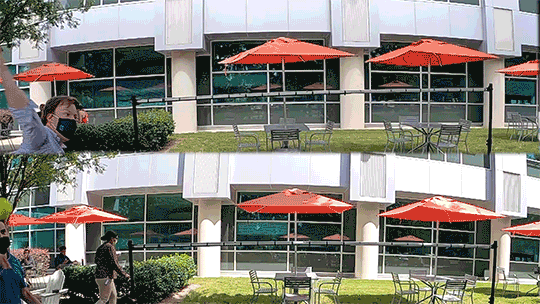TEP Talk: Franks and Fast-Pitching
Last Thursday we turned the courtyard of Technology Enterprise Park (TEP) into Technology Enterprise [Baseball] Park for the day! Complete with Fox Dogs catering, Cracker Jacks, and a little friendly speed pitching competition, tenants enjoyed some fresh air and fun while chowing down on tasty ballpark treats.




Being the nerds (and proud of it!) that we are, the Tech Square ATL (TSQATL) Social Club team had to add a little technological flare on the whole production. For the competition, participants were handed a softball with sensors inside that calculated the speed of the throw at a 40-foot pitch distance.
For those that stepped up to the plate (and the challenge!), their pitch speeds were captured by the softball, recording ranges from 27 mph to 65 mph over the two-hour event. To ensure accuracy, TSQATL also set up a GoPro Hero 8 camera at 240fps to capture the speed of the throws by measuring the distance traveled over time. A pole with markers every six inches aided in the calculations.
speed = distance/time
Over 25 attendees attempted to be crowned as TEP’s fastest pitchers, but only a few reigned supreme, with Corey Culver clocking in at 68 mph and Praj Kadoor following closely behind at 58 mph. Winners not only received bragging rights, but also a gift card.
DID YOU KNOW?
There’s science in sports! When a baseball pitch is thrown, the ball is also spinning, ultimately experiencing a Magnus Effect. This effect and/or force is largely responsible for the amount of curve or “break” the baseball experiences as it is traveling to the catcher. The upward Magnus Effect – a fastball where the pitch has backspin – opposes gravity and keeps the ball in the air longer, whereas the downward Magnus Effect – a curveball where the pitch has topspin – helps aid gravity, and ultimately shortens the flight of the baseball.
What’s your favorite ballpark snack? Let us know in the comments below.
